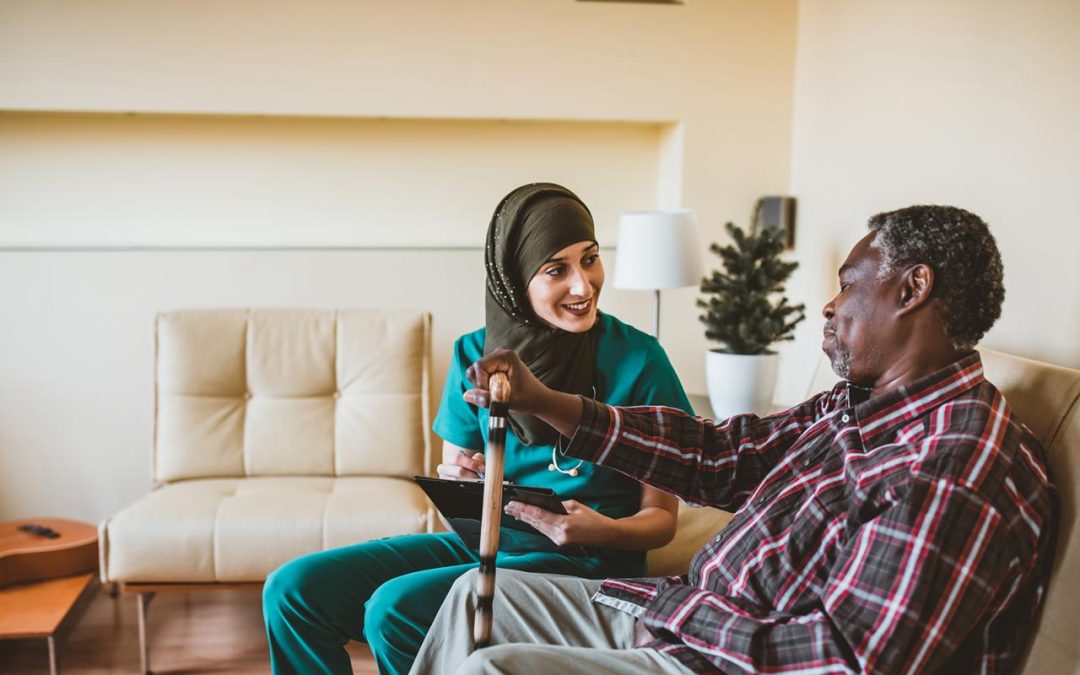Being socially connected provides safety and security, buffers stress responses, aids emotion regulation, improves health behaviors, and improves access to resources.

Generations Journal, vol. 44, no. 3 (Fall 2020)

Being socially connected provides safety and security, buffers stress responses, aids emotion regulation, improves health behaviors, and improves access to resources.

Introducing an effective, scalable, and sustainable approach to ameliorating loneliness

Volunteers are a key component to the program, and it demonstrates a 95 percent satisfaction rate.

Programs and designs for ameliorating loneliness need to match one of three specific varieties of the condition.

Programming models from CareMore and Aspire Health, and many more.

In trials, ElliQ tests well with users, who tend to bond with it.

Access to transportation is a vital prescription to stem the loneliness epidemic.

Reviewing risk factors in Black American caregiving families.

‘For most people social networks and support are also a foundational need.’

How Innovative Community Programs at Home and Abroad Address Food Insecurity and Social Isolation
Generations Journal, vol. 44, no. 3 (Fall 2020)
Abstract: Research confirms the adverse health effects of social isolation and loneliness, with increasing focus on finding effective solutions. This article describes themes that can inform program and intervention design: multiple underlying causal factors may...
Abstract: Community-based organizations (CBOs) are well-positioned to provide effective programs that reduce loneliness, enhance social connection, and build social cohesion skills and confidence. Unfortunately, CBOs are often constrained by lack of suitable program...
Abstract Loneliness impacts older persons during hospitalization and may amplify during the social distancing required by the COVID-19 pandemic. The American Geriatrics Society (AGS) CoCare: Hospital Elder Life Program (HELP) aids hospitalized older persons in...
Abstract: Loneliness in older adults is shaped by social context, which compounds personal vulnerabilities associated with aging. This article argues that while practitioners need to understand loneliness to better support those who are lonely now, because loneliness...
Abstract: This article examines healthcare-based approaches to reducing social isolation and loneliness among older adults. It reviews a variety of programs in the United States and looks at how they alleviate loneliness, foster connectedness, and improve health among...
Abstract: Loneliness is an underestimated issue among older adults, especially for those who age in place. Some can fall into a routine of staying home and cutting themselves off from the outside world. Intuition Robotics found during beta testing of their social...
Abstract While the issue of loneliness is large and complex, we are beginning to understand how critical transportation access can be in helping to remedy this significant societal issue. Recognizing the connection between mobility (or a lack thereof) and loneliness,...
Abstract This article connects adverse childhood experiences (ACEs), resultant health and chronic conditions, and social isolation. Black Americans are at higher risk of chronic conditions and likely to report more ACEs. Black American caregivers and care receivers...
Fall 2020 Generations Journal Guest Editors: Robin Caruso and Jennie ByrneSocial isolation and loneliness have been gaining ground as topics of critical importance in the United States, especially as they concern older adults. But the pandemic has pushed them...
Abstract: An examination of programmatic approaches to reducing social isolation and loneliness among older adults. This article reviews a variety of programs in the United States and other countries, and looks at how they work in concert to alleviate...
Abstract Social isolation and loneliness among older adults is a serious issue certain to grow with the population. Successful programs to combat it must employ multiple interventions to maximize the chances of social reintegration. One facility's methods are...
Abstract This article draws on investigations by its authors, and from American and Italian interventions to provide recommendations for decreasing social isolation in older adults for policy makers, researchers, and other professionals committed to supporting the...
Abstract Dani Klein Modisett's work with Laughter On Call—an organization she launched that uses laughter to create connection, improve health, ease stress, and contribute to the longevity of older adults with dementia—showcases through research and Modisett's...
Suggested citation for articles in this issue: [Last Name(s), First Name(s)]. “Article Title.” Generations Journal, vol. [#], no. [#] [season and year (ex. Fall 2024)]. [URL]
Generations Journal is the quarterly journal of the American Society on Aging. Each issue is devoted to bringing together the most useful and current knowledge about a specific topic in the field of aging, with emphasis on practice, research, and policy.